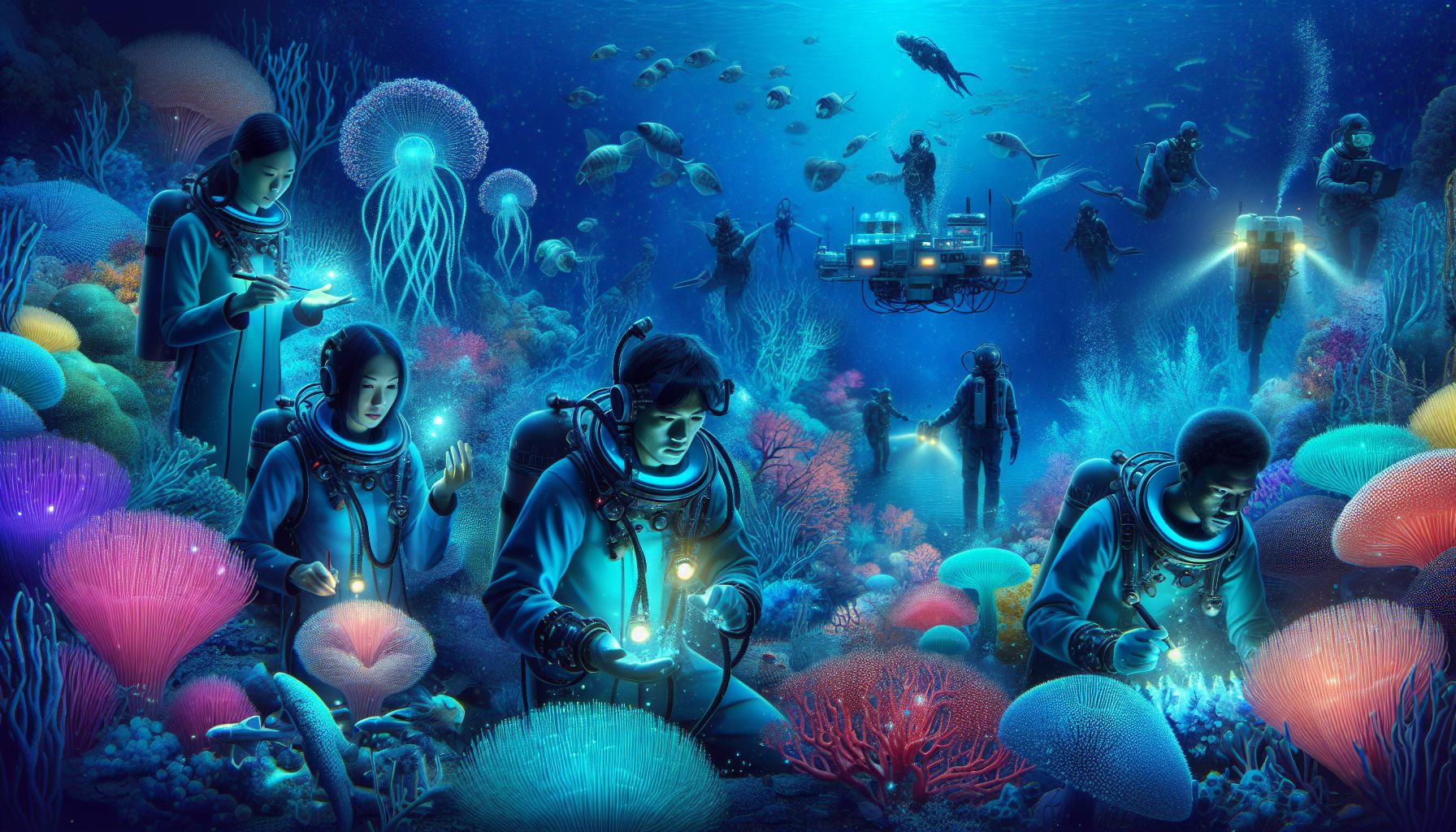The ocean covers more than 70% of our planet’s surface, and it is the heartbeat of our world’s biology. Within its vast blue depths lies a myriad of life forms, some of which are yet to be discovered. Marine biology, the captivating keyword chosen at random, is a field that combines the intrigue of exploration with the rigor of science. It comprises the study of oceanic life forms, their behaviors, and interrelationships with the environment. This article aims to delve into this fascinating discipline, uncover its importance, and discuss career prospects, groundbreaking discoveries, and how it plays a crucial role in ocean conservation.
What is Marine Biology?
Marine biology is the scientific study of organisms in the ocean or other marine bodies of water. Given that a vast majority of the earth is covered by the ocean, marine biologists study a wide variety of plant, animal, and microorganisms, from microscopic phytoplankton to gigantic blue whales.
Why is Marine Biology Important?
Understanding Ecosystem Dynamics: Marine biologists decipher the complex interactions within marine ecosystems, which is vital for understanding how to maintain and protect ocean health.
Biodiversity: The ocean is the largest habitat on earth and is immensely diversified. By studying the myriad forms of life, marine biologists work to preserve biodiversity, which is critical for the resilience of the ecosystem.
Climate Change: Oceans play a crucial role in regulating the world’s climate. Marine biologists contribute to climate research by studying oceanic processes and life forms that affect and are affected by climate change.
Medicine and Pharmaceuticals: The study of marine life has resulted in the discovery of many medically useful substances—marine organisms provide a rich source of natural products that can be used in biotechnology and medicine.
Sustainable Resources: Marine biologists help in the development of sustainable fishing practices, aquaculture (the farming of aquatic species), and understanding the impacts of human activity on marine life.
Career Paths in Marine Biology
Individuals passionate about marine life and eager to contribute to understanding and preserving our oceans may find a career in marine biology fulfilling. Career paths in this field vary widely:
-
Academic Researcher/ Professor: Conducting research on marine organisms, publishing findings, and teaching at universities.
-
Marine Mammalogist: Specializing in the study of marine mammals.
-
Ichthyologist: Concentrating on fish biology.
-
Coral Reef Biologist: Focusing on the ecosystems of coral reefs.
-
Marine Biotechnologist: Using marine organisms in the development of new pharmaceuticals, industrial products, and technologies.
-
Marine Policy Expert: Working on the development and implementation of policies related to marine resources.
-
Aquarist or curator at aquariums: Caring for marine species and educating the public about them.
-
Marine Environmental Educator: Working with non-profit organizations or governmental agencies to educate the public about the marine environment and conservation strategies.
Required Education
The journey into marine biology typically begins with a Bachelor’s degree in marine biology, biology, or a related field. Many jobs require a Master’s degree or a Ph.D. for advanced research positions or university teaching roles.
Breakthroughs and Discoveries
The Depths of the Mariana Trench
The Mariana Trench is the deepest part of the world’s oceans, and studying it has revealed new species and insights into how life can exist in extreme conditions. Research here has implications for understanding life in outer space.
The Discovery of Hydrothermal Vents
In 1977, a team of marine biologists discovered hydrothermal vents in the deep ocean. These ecosystems are based on chemosynthesis rather than photosynthesis, revolutionizing our understanding of life’s energy sources.
The Importance of Microplastics Research
Marine biologists are at the forefront of studying the impacts of microplastics on marine ecosystems. Their research informs policy and drives initiatives to reduce plastic pollution in our oceans.
The Role of Marine Biology in Ocean Conservation
Preserving the health of our oceans is critical. Overfishing, climate change, pollution, and habitat destruction are some of the graver threats to marine ecosystems. Marine biologists help by:
-
Conducting Important Research: This research can inform conservation strategies and lead to the protection of threatened species and habitats.
-
Restoration Projects: Marine biologists work on projects to restore damaged ecosystems, such as coral reefs or seagrass beds.
-
Policy Development: Scientific findings help shape policies and regulations that protect ocean environments.
Challenges in Marine Conservation
Confronted with human-induced pressures, marine biologists are often at the forefront of identifying problems such as declining fish stocks, coral bleaching events, and habitat destruction. Among these challenges are:
-
Global Warming: Increasing sea temperatures affect the distribution of marine species and can cause widespread coral bleaching.
-
Ocean Acidification: The absorption of excess atmospheric carbon dioxide by the ocean is changing its chemistry, impacting shellfish and coral reefs.
-
Plastic Pollution: The overuse and improper disposal of plastic materials are killing marine life and polluting ecosystems.
-
Sustainable Fishing: Marine biologists are tasked with helping to devise methods to fish sustainably to ensure that marine ecosystems continue to thrive.
Conclusion: The Future of Marine Biology
The ocean is a frontier of discovery, and marine biology is essential for its exploration and protection. As humanity’s activities continue to impact marine ecosystems, the field of marine biology is more relevant than ever. The next generation of marine biologists faces great challenges but also countless opportunities to make a significant impact on ocean health and sustainability.
References
-
National Oceanic and Atmospheric Administration. (n.d.). What is Marine Biology? Retrieved from NOAA
-
The Smithsonian Institution. (n.d.). Marine Biodiversity. Retrieved from Smithsonian Ocean
-
The Ocean Foundation. (n.d.). Ocean Acidification. Retrieved from The Ocean Foundation
Through understanding, education, and direct action, marine biology paves the way for a future where the ocean’s rhythm continues, vibrant and teeming with life. It is a discipline where science meets advocacy, and where those passionate about the ocean can contribute to its endurance for generations to come.
